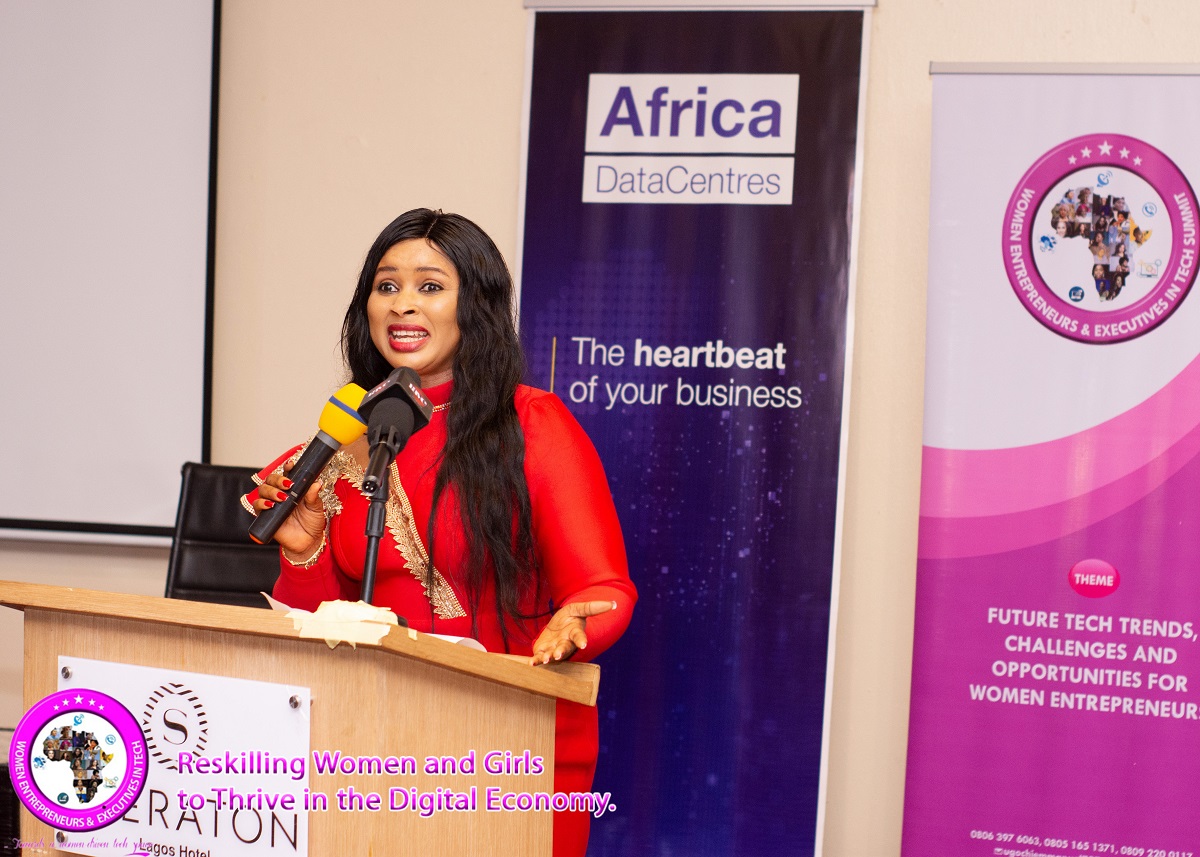The National Information Technology Development Agency (NITDA) has explained that women’s participation is crucial in the digital economy pursuit being championed by the Federal Ministry of Communications and Digital Economy.
The Head of Servicom Unit at NITDA, Mrs. Tariundu Ndoni, whjo gave a goodwill message on behalf of the DG, Mal. Kashifu Inuwa at the Nigerian Women Entrepreneurship & EXecutives In Tech Summit (WEETS) in Lagos yesterday, noted that with women’s participation in ICT below 24 percent, it has become essential to empower and encourage them to consider studies and careers in ICT to bridge the existing technology gender gap.
Speaking on what NITDA is doing to bridge the gender gap, Mrs. Tariundu noted that NITDA is determined to bridge the gap and boost participation through the special training programs for women and the conventional ICT capacity development activities of which both men and women are given the same opportunities.
Read Also: We’re committed to bridging digital gender divide — NCC
She disclosed that in recent years, NITDA had trained 594, 344 Nigerians in different courses of Digital Literacy (combined for men and women).
“Specifically, NITDA has trained 200 women in ICT Training and Entrepreneurship and each participant is provided with laptops, Internet dongles and various software packages. 50 women trained in capacity building for digital literacy, 60 rural women trained in ICT Techprenuership and tablets distributed to each participant,” she said.
Mrs. Tariundu believes that the 310 women being trained are projected to create 3,100 direct jobs and over 310,000 indirect jobs, emphasizing that the key objectives of these programs include boosting digital literacy, digital jobs creation, promoting digital inclusion, bridging the digital divide and the use of technology to address the gender imbalance in terms of economic opportunities.
She added that there are several other available NITDA’s interventions and initiatives that leverage ICT to enhance access to infrastructure, education, learning and skill development for women through the agency entrepreneurship start-up programs and capacity training in National Centre for Artificial Intelligence and Robotics (NCAIR) and Office for Nigerian Digital Innovation (ONDI).
According to her, NITDA also partners with the public sector, academia, private sector, development partners and MDAS on policies and incentives that support ICT entrepreneurship and commercialization for women.

























































